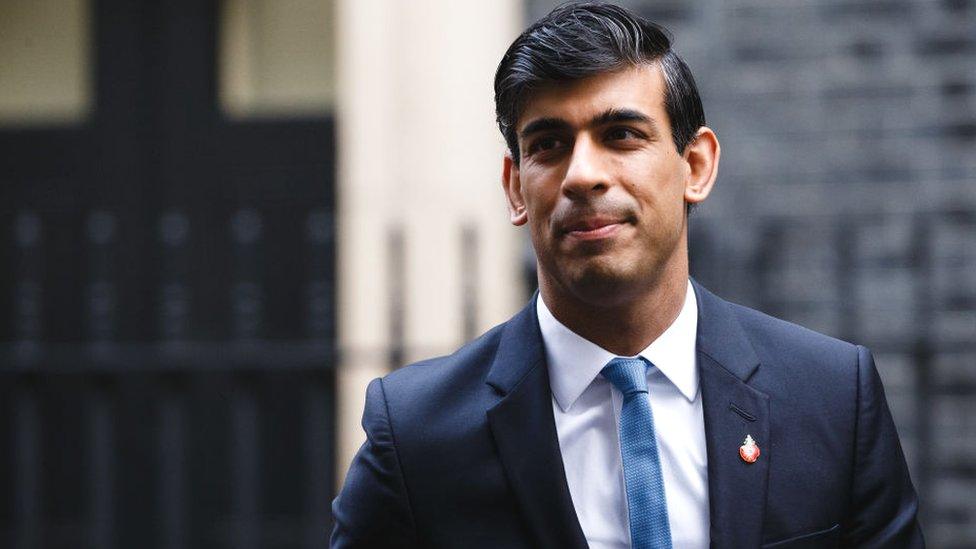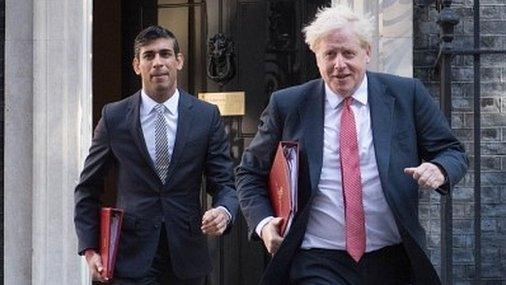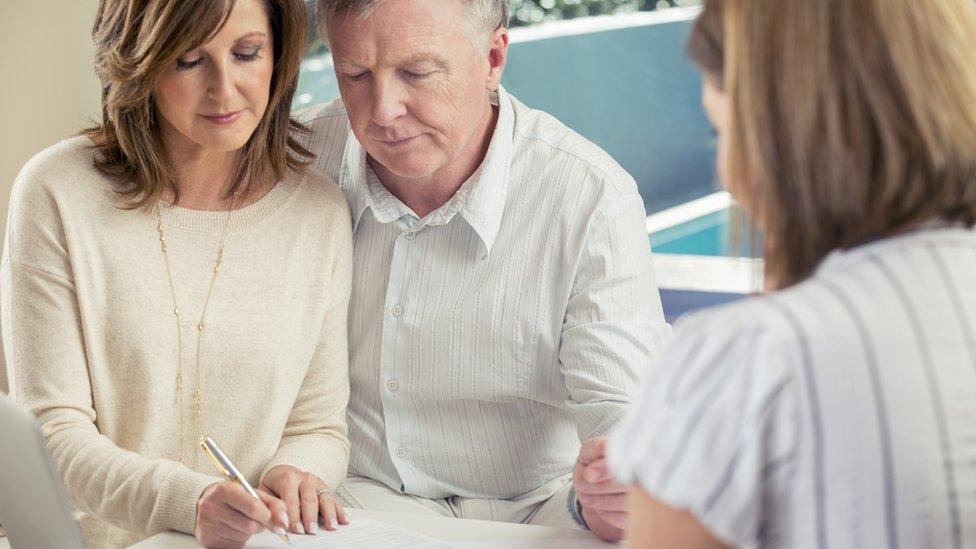Capital gains tax: Rate should double, says government review
- Published
- comments

The amount of tax levied on capital gains could be raised by billions of pounds, according to a new report.
About £14bn could be raised by cutting exemptions and doubling rates, according to the review, which was commissioned by Chancellor Rishi Sunak.
The main losers would wealthy people who own second homes or assets not shielded from tax.
It comes as Chancellor Rishi Sunak looks for ways to cover the enormous costs of the coronavirus pandemic.
In September, he reassured recently-elected Tory MPs there would not be a "horror show of tax rises with no end in sight".
The Office for Tax Simplification (OTS), however, found that many current features of capital gains tax "can distort behaviour" as people try to lower their bills.
The government-run body says the tax, levied at 10% for basic-rate taxpayers and 20% for higher-rate taxpayers, could be doubled if it were brought in line with income tax.
Capital gains tax is the levy you pay on the profits - or gain - that you make when you sell, give away or dispose of something you own. For residential property, for example, it is charged at 18% or 28% for basic-rate taxpayers and higher-rate taxpayers respectively.
The report also suggests the amount raised could also be boosted by cutting exemptions.
At the moment, the first £12,300 of capital gains is exempt. About 50,000 taxpayers reported profits narrowly under that threshold last year.
'Odd incentives'
On Wednesday, the body said that the current rules were "counter-intuitive" and created "odd incentives"."The disparity in rates between capital gains tax and income tax can distort business and family decision-making and creates an incentive for taxpayers to arrange their affairs in ways that effectively re-characterise income as capital gains," the report said.


Before dropping your jaw in horror that the Office of Tax Simplification is suggesting capital gains tax could be brought more in line with income tax - or doubled - pause for a second. In most years, most of us won't pay it. In fact, even if the number of people paying it trebled, it probably still wouldn't be you.
More than 31 million people pay tax on their income, raising £180bn in 2017/18. By contrast, only 265,000 pay tax on capital gains - the profits they make when they sell assets such as shares or bonds.
The first £12,300 is exempt; and because you can control when you sell an asset and realise a gain, many - some 50,000 - can arrange their affairs so any gain they made comes just in under the threshold. And when they do pay capital gains tax, it's at half the rate of income tax.
The OTS report says most gains are concentrated among relatively few taxpayers, who are paying "proportionately less" tax than everyone else. In other words, the light capital gains tax regime aggravates the already yawning inequality of wealth between the few who can actually make capital gains and the many - who will rarely or never do so.

The independent tax adviser also suggested scrapping the rule which allows capital gains tax to be wiped on inherited assets, as well as removing relief for investors selling shares in unlisted companies who have had them for a minimum of three years.
If the recommendations are taken on by the government, thousands of taxpayers may face higher rates on the profits made on selling second homes or investments.
Mr Sunak commissioned the report in July, but does not have to accept its findings.
A spokesperson for the Treasury said: "The government's priority right now is supporting jobs and the economy.
"We thank the OTS for their independent report which will be considered in due course."
- Published2 September 2020

- Published15 July 2020
